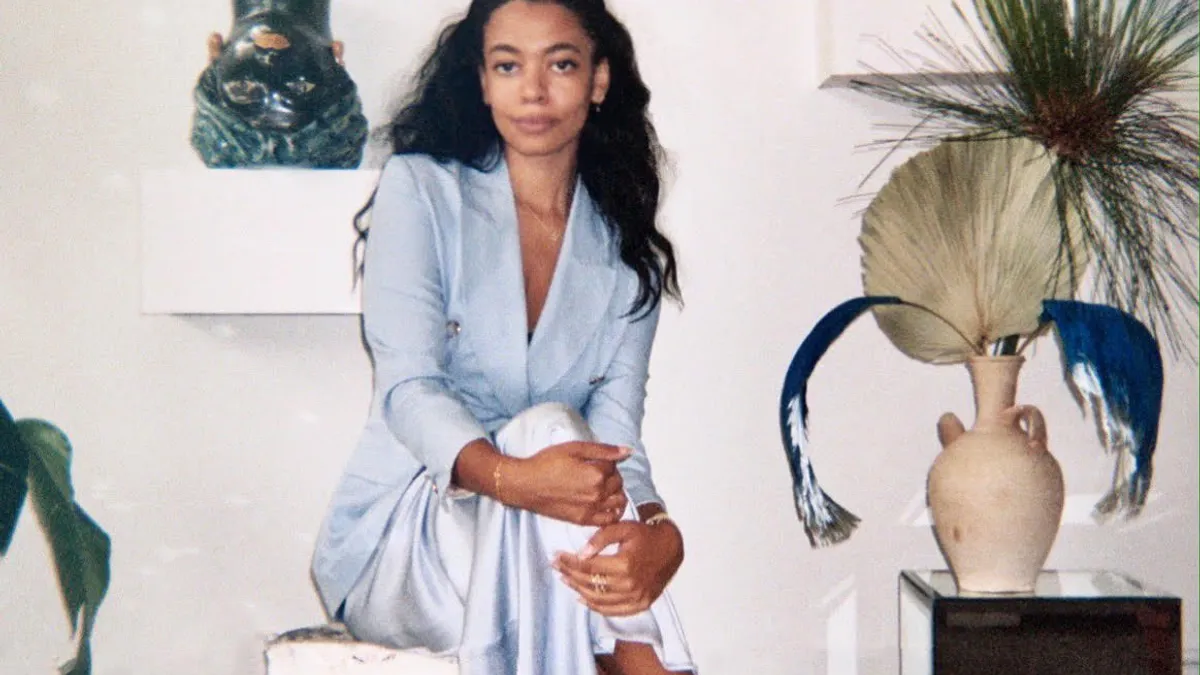Aurora James, a Toronto native who founded her Brother Vellies fashion label in New York in 2013 and is creative director there, said she read the many corporate statements of sorrow and support, in her inbox and on social media, after the killing of George Floyd by police this spring.
“I was reading it but I definitely wasn’t believing it,” she told the CBC.
Floyd's death unleashed a level of activism in the U.S. not seen since the Civil Rights movement, and businesses couldn't sit things out. It became clear, however, that, like James, people want them to match their words with some action.
James told CBC she asked herself: “What sort of major commitment would I need from the private sector right now, from major retailers, to actually make me feel like they were standing with me as a Black woman in America?"
She then acted swiftly and kept it simple.
James called on multi-brand retailers to stock their shelves with merchandise from businesses run by Black, Indigenous and People of Color (BIPOC) and backed the effort with an organization and a mission. By June, the 15 Percent Pledge was formed, an effort that James calls an opportunity for major institutions, including retailers, "to actively take part in combating systemic racism," according to an emailed press release. Her effort met a willing audience: There was "a 300% spike in searches for Black-owned businesses," according to recent information from creative strategy agency The Projects.
"Black people in the U.S. make up nearly 15% of the population," reads page one of the 15 Percent Pledge website. "So, we are calling on major retailers to commit a minimum of 15% of their shelf to Black-owned businesses."
The pledge entails three basic stages: determining how much of a company's shelf space and contracts are with Black-owned businesses; taking "ownership" of the findings, including "understanding blind spots and disparities, and identifying concrete next steps;" then, publishing and executing a plan.
Beauty retailer Sephora stepped up soon after the initiative launched and took the pledge within two weeks. Since then, Macy's, Madewell, Rent the Runway, MedMen, West Elm, Yelp, and Canadian retail giant Indigo Books & Music have joined. Magazines Vogue U.S. and InStyle U.S. have also signed up.
Macy's, which first indicated its intention to join the pledge in October, is the largest company to commit to it, according to an emailed press release from the 15 Percent Pledge sent on Nov. 23. "The department store chain ... will dedicate 15% of their purchasing power across all product categories to Black-owned businesses," per the release.
Recruitment for the 15 Percent Pledge is ongoing, but even brands that don't take it may begin to feel pressure from James's work. The group has recently moved to loop in the consumer, establishing a program that encourages people to assess how they spend their money, dedicate 15% of their discretionary funds to purchases from BIPOC businesses and contemplate a $15 monthly donation to the cause.
The 15 Percent Pledge and similar efforts, including Uoma Beauty founder Sharon Chuter's Pull Up For Change, are already gaining traction as retailers from Glossier to Target launch or reinforce efforts to diversify their teams. Representation of historically excluded groups in the retail industry's executive ranks has proven to be woefully stagnant.
There's also a movement within the movement to ensure that brands meet with success once they're finally given an opportunity, spawning organizations like the nonprofit Diversify Retail, which provides mentoring, grants, training and networking for students and entrepreneurs. As a business owner herself, James said in an October release that she understands how BIPOC businesses are suffering during the pandemic, and said she constructed the pledge to give retailers and the BIPOC businesses they'll be working with adequate time and space to meet their goals.
Ultimately, the aim, as she said in an emailed statement, is to "put $14.5 billion back into the Black community."
The pledge is the beginning of what will be an ongoing effort to get there, according to DeAnna McIntosh, founder and executive director of Diversify Retail.
"The lack of diversity in retail is a continuous conversation among Black Professionals in this industry," McIntosh said via email. "I fully support platforms who are demanding diversity and keeping these conversations at the forefront. It was amazing to witness how the 15 Percent Pledge prompted brands to finally examine the diversity of their organization, at all levels and areas of business — albeit the effort being long overdue. Now, however, it's time for action. It's time for the true, authentic work to begin that will drive the long-awaited change this industry so desperately needs."
Contact Daphne Howland at [email protected]



 Read more
Read more











